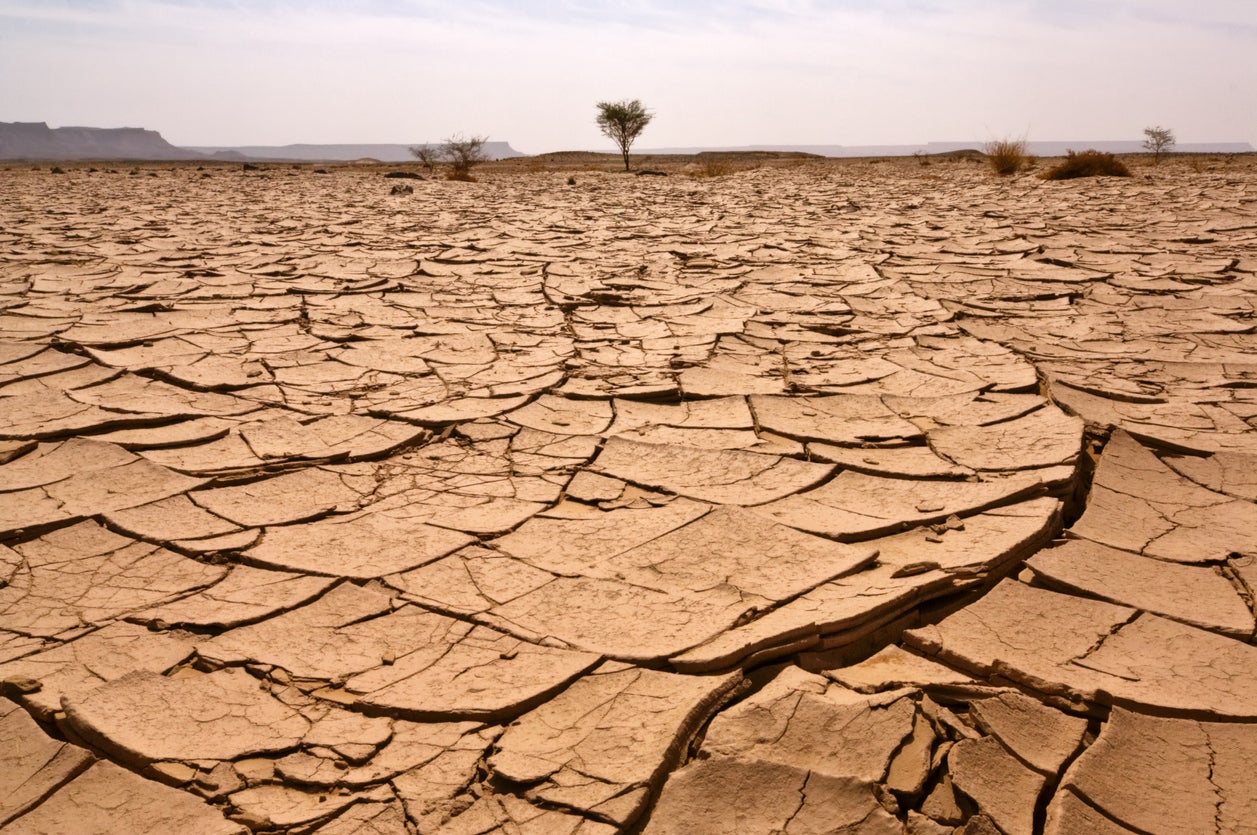Climate crisis increases violence against women and girls, study finds
Researchers warn gender-based violence in ‘disaster settings is a widespread, global issue’

Your support helps us to tell the story
From reproductive rights to climate change to Big Tech, The Independent is on the ground when the story is developing. Whether it's investigating the financials of Elon Musk's pro-Trump PAC or producing our latest documentary, 'The A Word', which shines a light on the American women fighting for reproductive rights, we know how important it is to parse out the facts from the messaging.
At such a critical moment in US history, we need reporters on the ground. Your donation allows us to keep sending journalists to speak to both sides of the story.
The Independent is trusted by Americans across the entire political spectrum. And unlike many other quality news outlets, we choose not to lock Americans out of our reporting and analysis with paywalls. We believe quality journalism should be available to everyone, paid for by those who can afford it.
Your support makes all the difference.Natural disasters unleashed by the climate crisis increase violence against women and girls, a new report has found.
Research, published in BMJ Global Health, suggested a surge in trauma, mental health problems and financial struggles triggered by natural disasters are driving factors behind such violence.
The report also noted the rise in domestic abuse, rape and other forms of gender-based violence could be explained by natural disasters leading to a dearth of policing and gaps in healthcare and other frontline services.
Victims of abuse and violence are more isolated due to their usual paths to support being shut down and family networks being disrupted by climate chaos, researchers added.
The first-of-its-kind report argued rising levels of violence against women and girls leads to women who have been raped having unintended pregnancies or dangerous backstreet abortions or catching sexually transmitted infections. While it can also lead to women killing themselves or dying at the hands of men.
Alyssa Thurston, the study's lead author, told The Independent “failure of law enforcement” can generate “particularly risky environments” in displacement camps or evacuation shelters. The study’s findings demonstrates violence against women and girls in “disaster settings is a widespread, global issue”, she added.
“Perhaps most importantly, the evidence points to disasters intensifying many of the existing societal drivers of violence against women and girls, like gender inequalities, low status of women and girls, and financial dependence of women on men,” Ms Thurston added.
“Ensuring that women and girls that make up half of the world’s population are not left behind during disasters is paramount.”
The violence identified in the research was predominantly physical, psychological and sexual – with researchers examining murder, coercive control, aggressive behaviour, forced early marriage and financial abuse.
Just over a third of perpetrators were current or ex-partners, while some 15 per cent were relatives, 12 per cent were strangers, 11 per cent were figures of authority. Some 8 per cent were either friends or neighbours, while 17 per cent were perpetrators who did not fit into these categories.
The academics called for “greater awareness on disaster-related” violence against women and girls at a policy level as well as disaster relief measures that take gender into account.
“And inclusion of women in disaster management are critical,” researchers added. “Further, systems for rapid and effective coordination between disaster management, law enforcement and health authorities must be defined clearly to prevent [this type of violence] and address its health consequences.”
The report noted natural disasters can compound pre-existing gender and social inequalities and worsen women’s representation in positions of power which in turn increases gender-based violence.
Some 7,348 disasters sparked by natural hazards were recorded in the last 20 years, which is almost double the amount recorded between 1980 and 1999, researchers said. While 84 per cent of all recorded disasters were linked to a rapidly heating planet from 2008 to 2017.
Examples of this include bushfires and heatwaves claiming lives and droughts ravaging crops.
Ruth Davison, of Refuge, the UK's largest provider of shelters for domestic abuse victims, told The Independent: “Whilst natural disasters may exacerbate the violence women experience at the hands of men – they do not explain the root cause of domestic abuse.
“Domestic abuse is all about power and control – it is systematic, purposeful and intended behaviour. Women experience abuse in many different ways most readily seen as physical, emotional, psychological, sexual and economic abuse.
“It is the biggest social issue impacting women in this country and across the world – and one, in the UK, which affects one woman in four at some time in her life. Domestic abuse is an insidious and under recognised crime. There is never an excuse for domestic abuse. If you are affected by domestic abuse, you are not alone.”
A woman is killed by a current or ex-partner every four days in England and Wales.
The “frequency”, “severity”, and “duration” of such disasters around the world means their repercussions must be “formally recognised” in public health measures, the report said.
Researchers analysed all published evidence that examines the link between natural disasters and violence against women and girls.
Violence and abuse is not the only gendered impact of the climate crisis, with experts frequently warning global heating exacerbates existing inequality due to women having less socio-economic and political clout.
Previous data from the United Nations shows 80 per cent of those who have been displaced by climate change are women.

Join our commenting forum
Join thought-provoking conversations, follow other Independent readers and see their replies
Comments